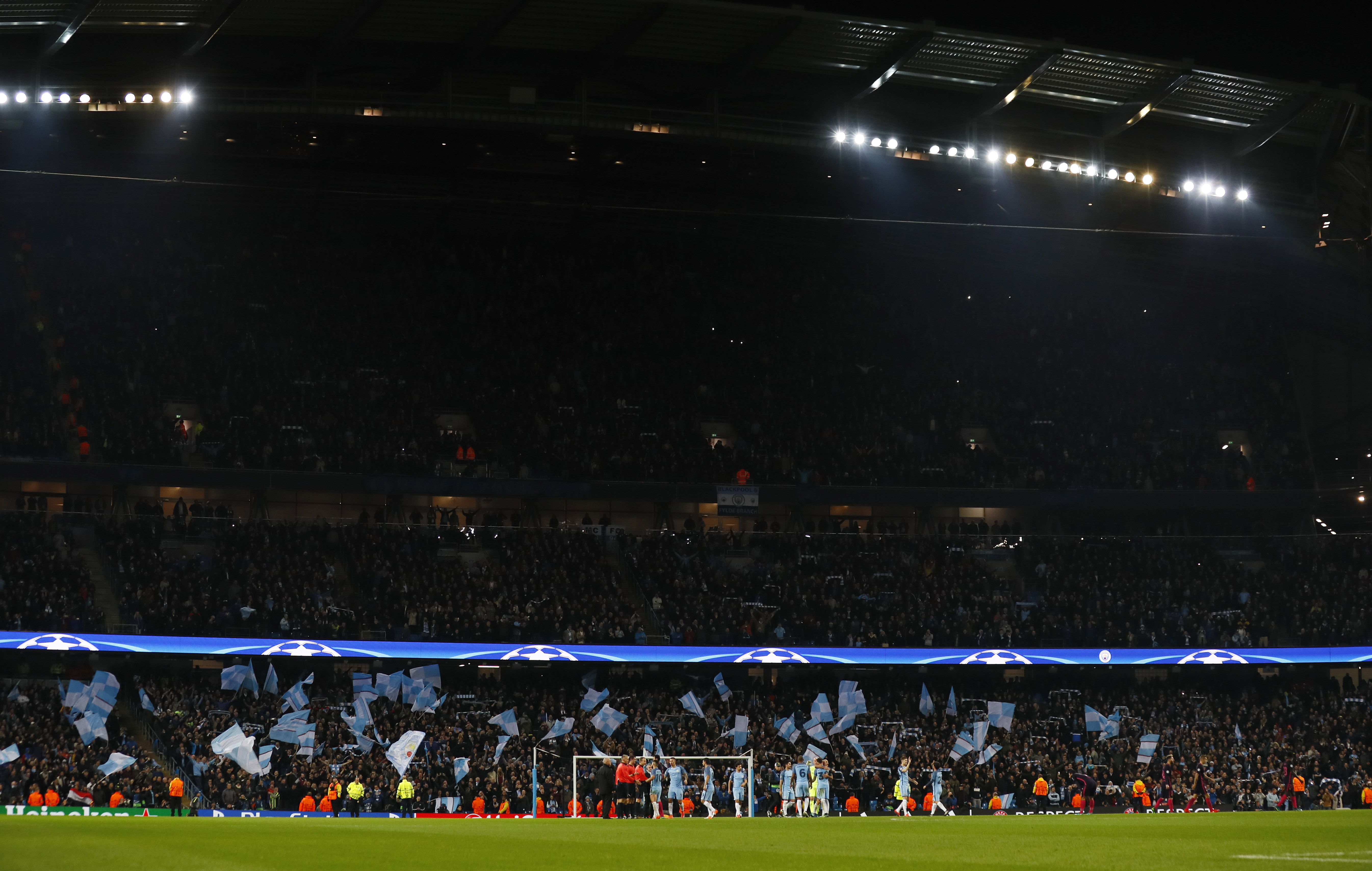American fan engagement would not work in the Premier League
Not long ago, I read an article in The Drum written by digital consultant Chris Bishop and entitled ‘Why English football sucks at fan engagement – and Americans are in a different league’.
Since then I’ve found my mind wandering back to it now and then. To me, it seemed to hit upon something so fundamental in the difference between two countries with such vastly different sporting cultures.
There are clear differences between American sport and European sport – or more specifically British sport. At least when it comes to how fans enjoy them. I’ve always found the explanations as to why football – soccer – has never really caught on in America fascinating, for example.
For one thing, there’s an historical factor: European immigrants to America in the early decades of the 20th century were at pains to fit in, to seem ‘American’ and to offload their old world cultures and customs so as to assimilate with the population. As such, Italian, Eastern European and South American immigrants would leave their love of football behind, taking up baseball and American football instead. Football was already a well established pastime by the 1920s, yet those European immigrants around that period just didn’t take it with them.
There’s something achingly sad in the story of ‘undesirable’ immigrants in the early 20th century shedding their cultural identities for fear of being cast out of their new communities. There’s something even more dismal in the supposed silver lining, too: the fact that their lives were probably better because of it.
A whole new culture grew out of that. The fact that sport was to be played and watched as a form of entertainment – just something to pass the time – is at odds with a very British way of seeing sport as an emotional draw.
Kevin Keegan once said of Newcastle United’s supporters, “The match for them is a bit like people down south going to the theatre.” That was meant as a jibe at southerners, something fans of London football clubs would take exception to. Football isn’t like the theatre to any football fan because although fans want to be entertained, they don’t actually come to the stadium for entertainment: they supposedly come because they feel some deeper emotional force drawing them in.
The suggestion is that most Americans see ‘consuming’ sport in the same way that they might ‘consume’ a play: if that’s true, it’s a cultural quirk that doesn’t really exist in Britain. The reason I use inverted commas around consuming is because many British sport fans – probably most especially football fans – would settle on an emotion somewhere in between offence and bemusement if you told them that watching their favourite team on a Saturday afternoon was ‘consumption’. Just look at the depth of feeling, the sheer outrage amongst West Ham United fans when their CEO Karren Brady referred to fans buying tickets to their new London Stadium as ‘customers’. They’re not customers they say, they’re fans. They’re not consumers they say, they’re fans. They’re the lifeblood of the game, see.
But look at the opposite polar extreme: if they’re buying tickets or paying for TV subscriptions, what are they if not customers?
The romantic view that football fans have of their status at their clubs may not be true any more – these people who consider themselves as integral to the club as the people whom it employs, often for obscene wages, but who pay their own way to support the club all around the world and are recompensed only by a half-hearted clap or even a nod for a few seconds at the end of an away game.
In his article, Bishop recounts the day out he enjoyed watching the LA Dodgers, and contrasts it with the fairly dank picture he paints of watching English football. His point has nothing to do with the sports themselves or even the on-field action. It all has to do with sport as an event. The idea, reading between the lines, is that it should be holistic: before the game, during it and after it, clubs should be doing more to engage with their fans. He prefers activities in and around the stadiums at American sports to the sticky-floored pubs that make up pre and post match rituals in Britain. He prefers pre and post match entertainment at American sports (who wouldn’t?) and considers it a chance for sports clubs to gather data about their fans, and to create a relationship, make them feel welcome.
There’s an irony and a paradox in the British attitude towards all of that. Manchester City’s Etihad Stadium provides one of the best matchday experiences in the Premier League. The club encourages fans to arrive early to enjoy a drink and some food just outside the stadium, with live entertainment and a jovial atmosphere. It’s almost like going to a concert or a festival: a family friendly day out.
Yet the Etihad also has a reputation for being one of the quietest stadiums in the league, a bad reputation amongst football fans – not because the stadium isn’t great, and not because no noise can be generated, but because the fans just don’t. There’s a singing section of hardcore supporters stationed right by the away fans, mostly just so the noise heard isn’t always from the away support.
From a purely marketing point of view, Bishop is right. British sport does nowhere near enough to engage its fans, and there is a huge opportunity there. Though as he points out himself, he’s not advocating for the ‘Americanisation of the beautiful game’. He’s right about that, too. But there’s another paradox in that.
Football fans in Britain deserve so much more. Many of them spend thousands of pounds a season just to watch their team because they feel part of the club. They deserve their club to care more about them, and to give them what they want: they deserve their club to want to give them what they want. And the only way you find out what those fans want is by talking to them, collecting data, finding out what they like and dislike. But at the same time, the idea of ‘customer relationship management’ sounds so sanitised, so patronising and, frankly, so sinister to football fans.
And there’s the crux of the problem: football fans have, since the very beginnings of the sport, felt attached to their club. And now that they are getting further and further away, they probably won’t accept their club being run like a business and the fans treated like customers – however valued.
America does fan engagement so well precisely because there are fans to engage. In Britain, fans don’t consider themselves as a group of people to be engaged. As far as they are concerned, they are already part of the club.
About author
You might also like
SPORTEL 2021: Day One Recap
This year’s prestigious SPORTEL convention kicked off in sunny Monaco today, welcoming a host of familiar faces as well as plenty of new ones. Doors opened at 8:30am with businesses
Six Founding Riders Set To Bring The Vision Of The UCI Track Champions League To Life
Olympic Champions, UCI World Champions and World Record holders join the new track cycling competition debuting in November 2021 The UCI Track Champions League is delighted to announce that six
Sports related spending to soar this summer as pre-pandemic life resumes
New insights from eBay Ads UK reveal the potential for brands to engage with an excited but nervous nation as sports events get back on track As pubs and indoor










